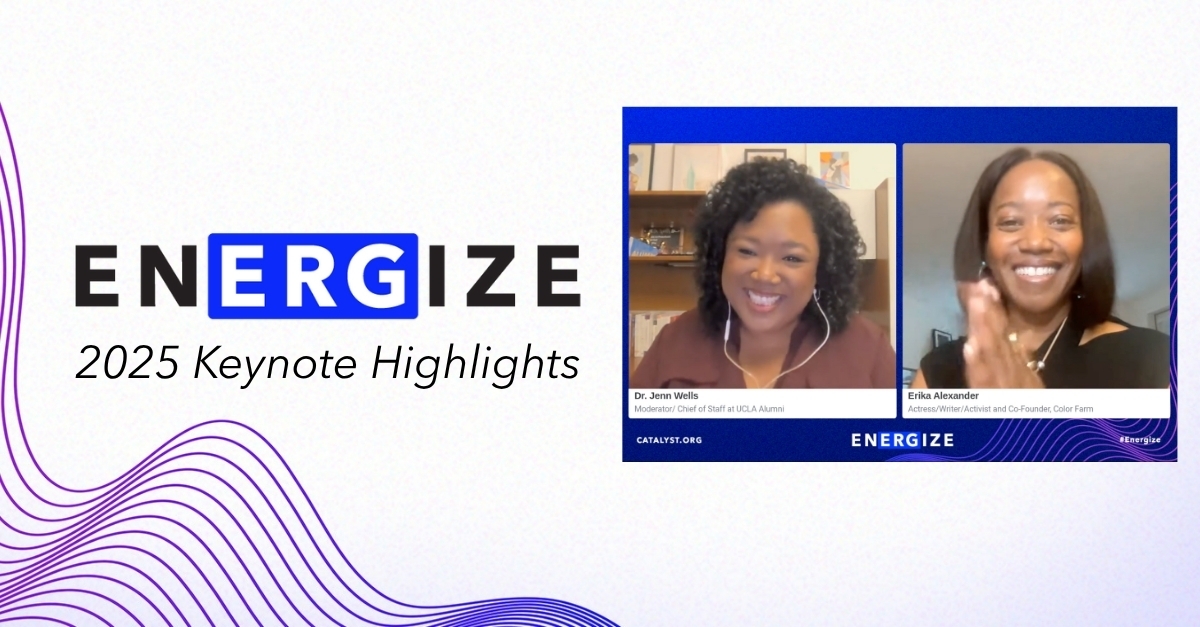Erika Alexander on shaping workplace culture through narrative
5 min. read & watch
| Updated ; first publishedErika Alexander’s early success portraying Maxine Shaw in Living Single inspired a generation of Black women to pursue leadership in law, business, and beyond. This phenomenon, called the Maxine Shaw Effect (Color Farm Media), shows how diverse representation can expand the imagination of what is possible.
This experience taught Erika the significant role media plays in shaping culture and social norms. Today, Erika channels her decades of influence as a celebrated public figure into running Color Farm, a media platform focused on telling stories with intention and integrity. Her films and audiobooks give a platform to stories and people who have been historically underrepresented.
Through this work, Erika is driving meaningful change across organizational culture, using the power of narrative to highlight systemic issues and drive impact.
“We tell stories that aren’t just diverse in casting, but in purpose,” she noted. In practice, this means challenging dominant narratives and amplifying voices that are often overlooked.
By showcasing the authentic lives and experiences of underrepresented people, Color Farm’s stories empower employees and business leaders to find their authentic voices—and sharing them as tools to educate, motivate, and navigate a more inclusive path forward.
Erika believes that only by connecting with other people on a human level we can begin to shift organizational culture.
“Systems don't change because they're asked nicely. They change because people like you won't stop knocking, won't stop innovating, won't stop changing." — Erika Alexander, during her keynote session at ENERGIZE 2025
In a challenging external environment, ERGs are also one of the most legally sound ways to engage employees. ERGs allow inclusion leaders to elevate the impact of their work while bringing more people into the conversation. Catalyst research demonstrates that employee resource groups (ERGs) are one of the most effective ways to do this.
ERGs are uniquely positioned to elevate authentic voices and foster environments where all talent can grow. Encouraging employees to share their personal stories is one, critical way to bridge business goals with the principles of fairness that make everyone feel welcome.
The result is long-term success for businesses and employees who are more productive, dedicated, and interested in growing with the company.
In a professional climate increasingly shaped by AI and automation, Erika emphasized the ongoing need for human-centered skills like communication, empathy, and coalition-building. “Soft skills are not soft,” she said. “They’re survival skills for the 21st century.”
"Your voice isn't optional. It is necessary.”
For business inclusion leaders, this is a key part of the work. Empathetic leadership drives innovation and engagement, according to Catalyst research. Whether you’re an ERG member trying to recruit colleagues to join your initiative or an HR practitioner who wants to improve company retention, inclusion hinges on the ability to build human relationships.
For organizations navigating the intersection of technology, inclusion, and growth, the takeaway is simple: leadership grounded in values and lived experience is a business imperative. And sharing stories is a powerful way to move the needle forward.
Want more?
- Save the date for next year’s ENERGIZE on 11 June 2026.
- Catch more insights on our ENERGIZE page and our featured research on ERGs
- Dive deeper into our Supporter-exclusive ERG resources, like our ERGs guide
